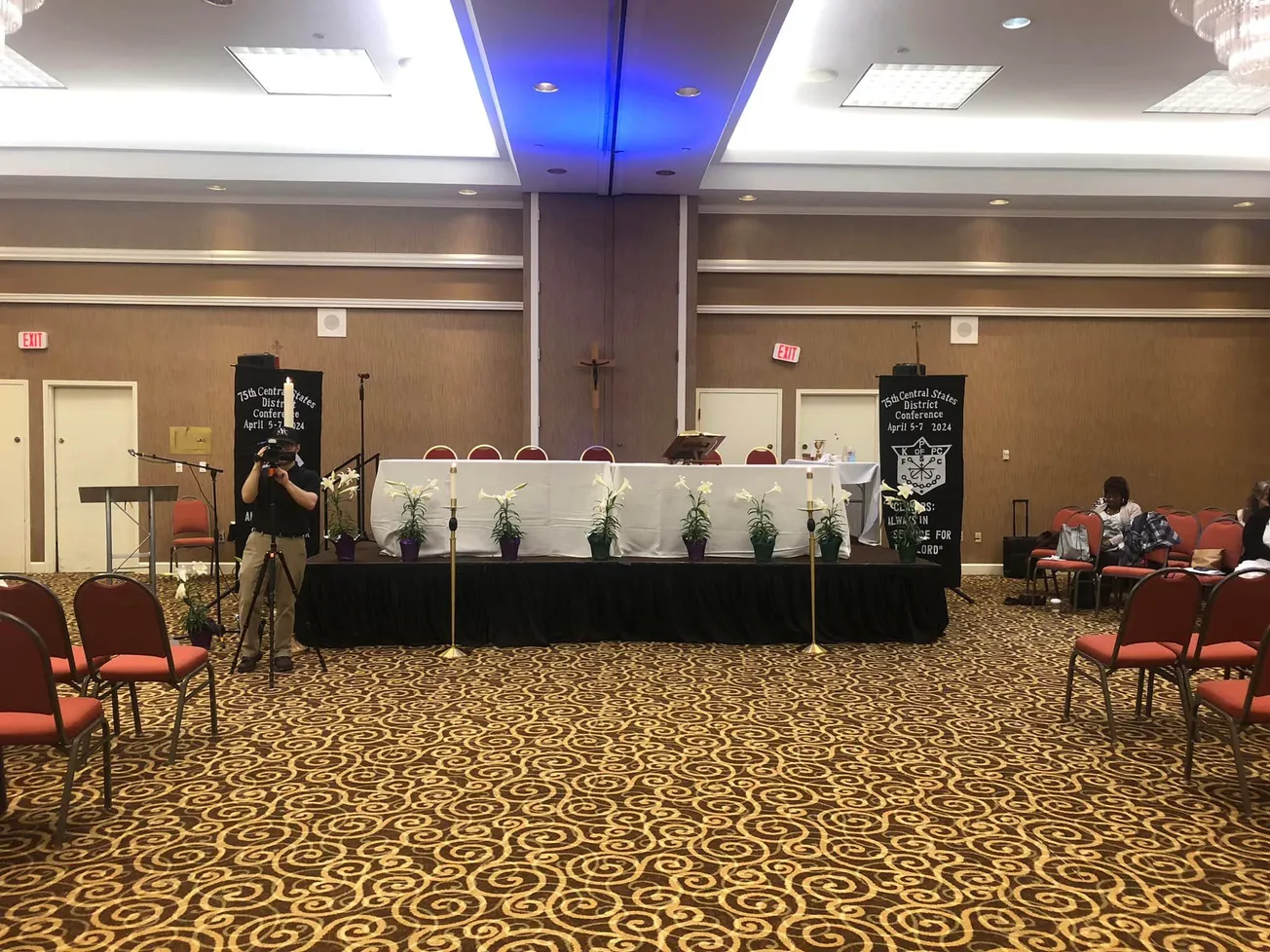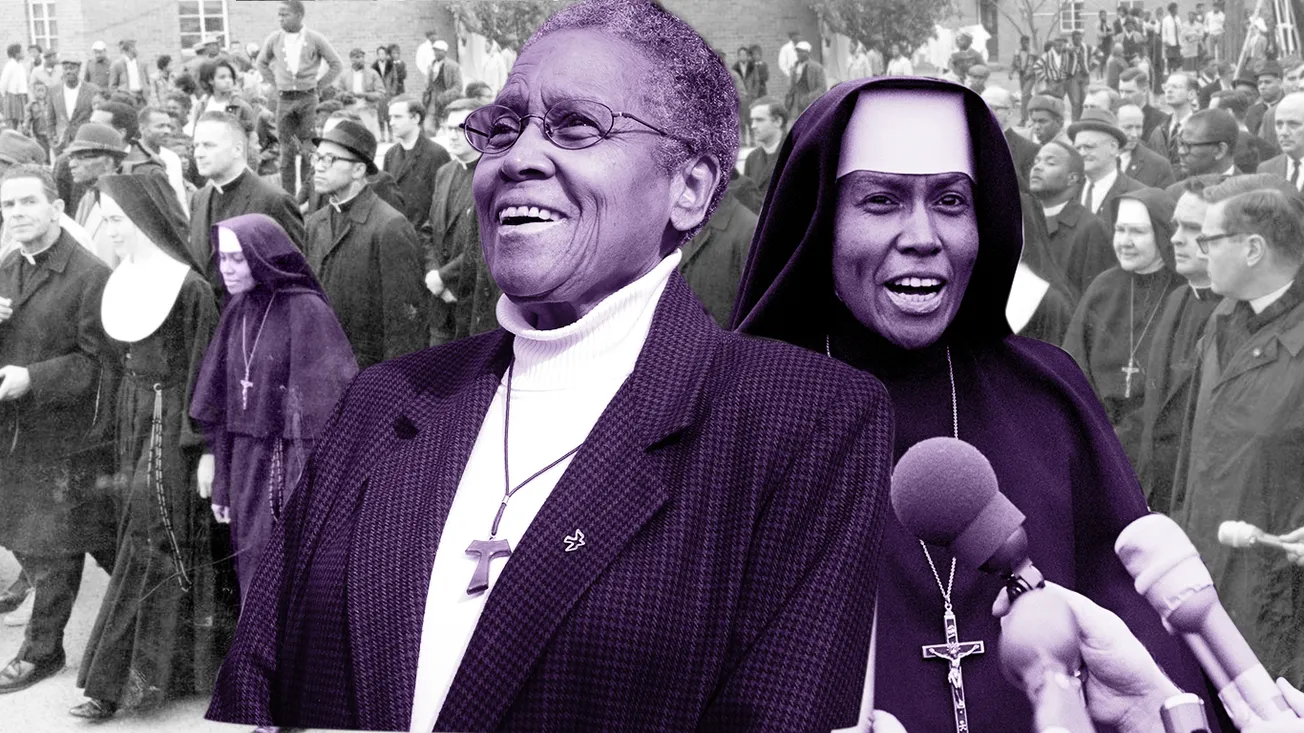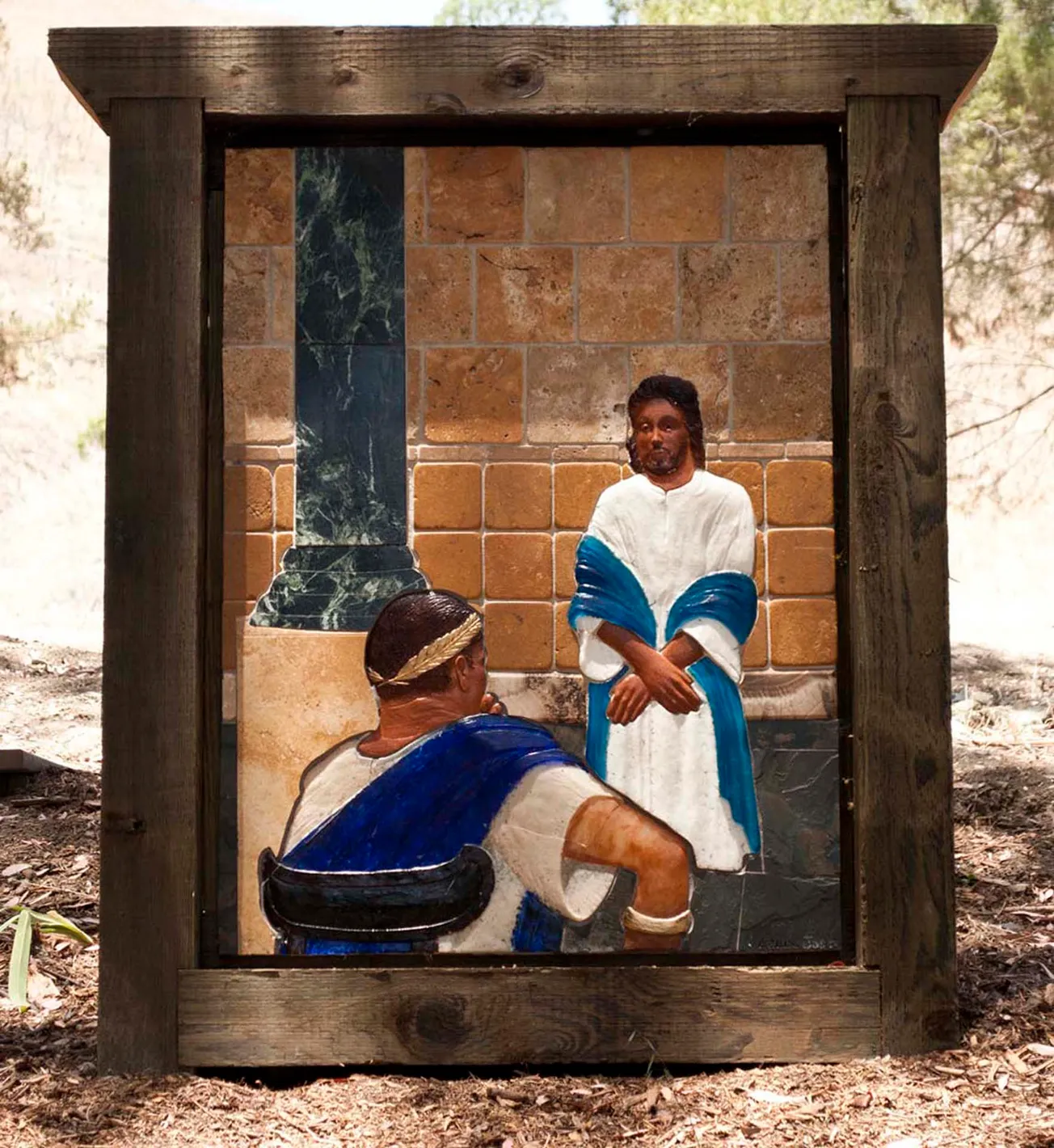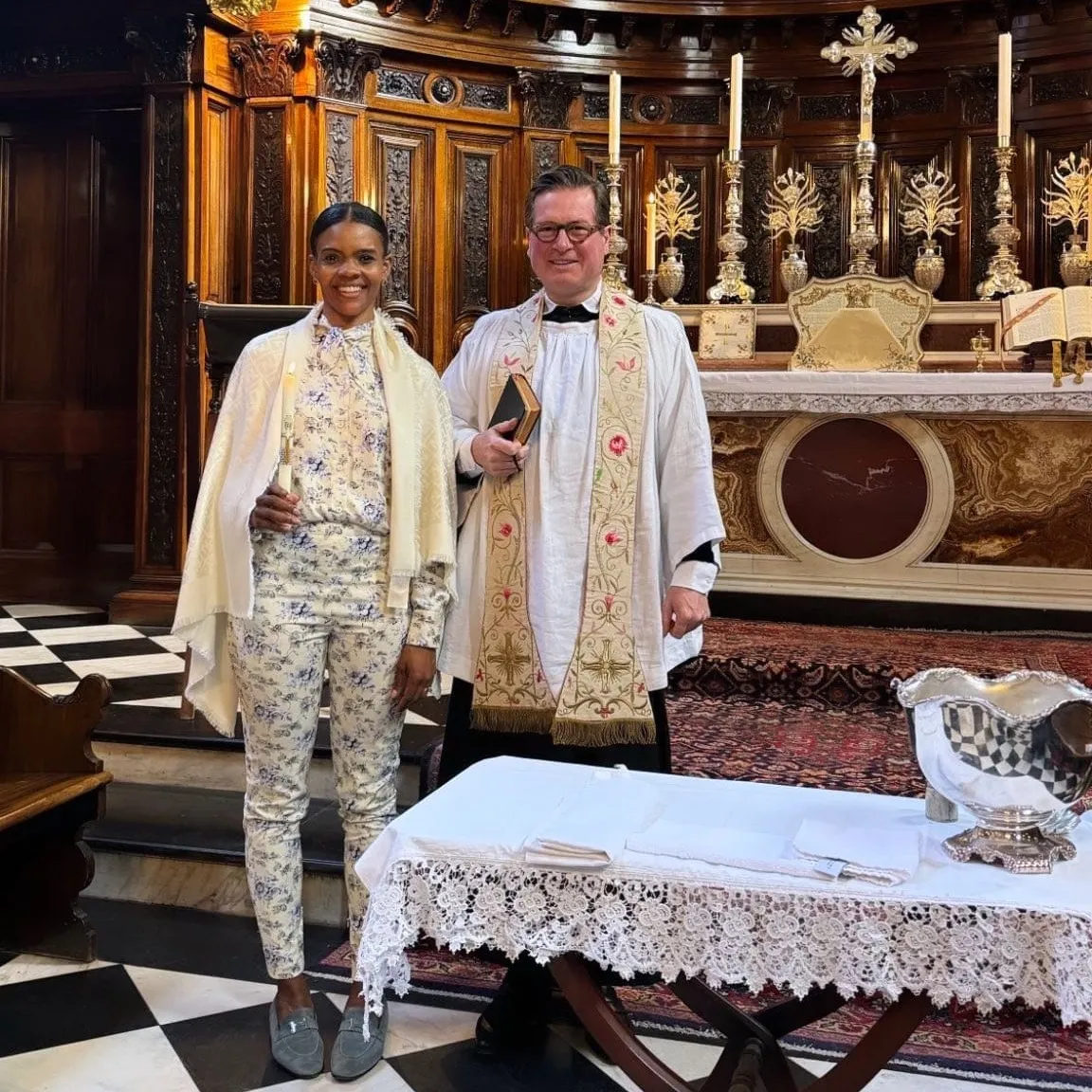After the example of Jesus Christ, Pope Francis is unwilling to cast away LGBTQ+ people. In “Fiducia Supplicans” (FS), the Church declared her unwavering teaching on the nature of marriage while also clearly articulating that all people, all sinners, can ask and receive God’s blessing. Jesus Christ, our master and God, the source and summit of our faith, is himself the greatest blessing we could ever receive. Immediately in the wake of FS, it seemed too many people lost sight of that blessing and had replaced following Jesus with rage bait and ideologically motivated blindness. In order to see clearly moving forward, we must set our eyes on Christ, who processes through our grumbling crowds.
Sometimes our world is much like a Biblical film reenactment. Seeing the reaction against FS, I was brought to the story of Zacchaeus, a man of ill reputation blessed by the coming of Jesus into his home. Zacchaeus was a rich tax collector who stole people’s money. Jesus was passing by this man’s town and drew a large crowd. Since Zacchaeus was short, he climbed a Sycamore tree to see Jesus pass by.
“When Jesus came to that place, he looked up and said to Zacchaeus, ‘Hurry down, Zacchaeus, because I must stay in your house today.’
Zacchaeus hurried down and welcomed him with great joy.”
(Luke 19:5-6)
There was no public excoriation of this man, no announcement by Christ to the crowds saying, “I’m not supporting his sins.” Instead, Christ made a public announcement that he would stay at the home of a public sinner. The very next verse describes the crowds grumbling: “When they all saw this, they began to grumble, saying, ‘He has gone to stay at the house of a sinner.’”
It’s quite parallel to some of the reactions I witnessed against the Church, which announced in FS that while a sinful relationship cannot be blessed, people can be blessed personally who are in same-sex unions and irregular relationships. Even though the document reaffirms the Church's teaching concerning both marriage and sex, people were too committed to playing their roles in the drama to see clearly. “How could the Church bless sin?”
The fundamental way we know ourselves to be sinners and are thus drawn to amend our ways is through God’s grace and by cooperation with God’s grace. God’s grace is a blessing. Had we needed to be perfect before we received God’s grace, we would have never been blessed with it to begin with. God always is blessing sinners but he has never once approved of any sins we’ve committed. So when Christ’s Body the Church reaffirms that she does the same thing after God’s example, there is no reason to be surprised. What I see in the Church supporting these blessings is a clear acknowledgment of the faith of LGBTQ+ people and how God continues to draw us to himself. What I see as the appropriate response is for us to look over those grumbling crowds to see Jesus. Jesus is the one who moves our hearts closer to his.
It can be difficult to overlook a crowd of grumbling people, especially when you’re short in stature. I’ve spent way more time than is warranted trying to explain or answer questions people have asked about FS and about gay Catholics. It may be my experience, as a gay man who's been required to explain myself and my faith so many times already, that shortens my own stature and makes it more difficult to see over the crowd. But with FS and the support of the pope, who has also tried his hand at explanations, I'm given a Sycamore tree by which I can see Christ more clearly.
“Ultimately, a blessing offers people a means to increase their trust in God. The request for a blessing, thus, expresses and nurtures openness to the transcendence, mercy, and closeness to God in a thousand concrete circumstances of life, which is no small thing in the world in which we live. It is a seed of the Holy Spirit that must be nurtured, not hindered.”
(FS 33)
God was working in the life of Zacchaeus in his desire to see Christ pass by. FS is an invitation for all of us to reflect on how God is moving in our lives and in our relationships. When that reflection becomes our focus, it encourages people in every circumstance to draw closer to God and be open to his will.
The Church simply doesn’t function in a way that precludes the blessing of sinners. When any of us are at Mass and for some reason or another cannot receive Communion, the Church allows us to receive a blessing instead. When the final benediction is given, there is no qualifier saying, “May the Lord bless you, but only if you accept and live out all the Church’s teachings.” Though Christ through his Church calls all of us to conform our lives to his will, an “exhaustive moral analysis” is reserved for the examination of one’s own conscience before Confession, not for blessings in general.

We are in a time of Eucharistic revival in the United States. In our Eucharistic processions, we bring Jesus into the streets, followed by people engaged in worship of him. We sing praises to Jesus publicly and we invite the whole world to fall on their knees before the Lamb of God. We don’t know where all the people we encounter are in their walk with Christ. However, we do not withhold Christ’s blessing from them. Why? Because Christ is the very person needed and he is the one who does the saving work in the human heart. The Church does not keep Jesus hidden away but instead brings Jesus to the far reaches of the earth. Every nation, every people, every hidden place is where we are to bring Christ.
If we refuse to bless like this, there is no point to the Eucharistic procession. Why do we bring Jesus out to bless the city with his presence if he is only meant for those whose lives already conform to his will? The answer is: He isn’t.
If we process with Jesus in contempt for the world and keep him to ourselves, discouraging the devotion of those who seek his aid in their lives and relationships, we act as the grumbling crowd. This is especially true if someone may not fully understand Christ or is just beginning their journey of placing everything in their lives at his feet. Having a hostile attitude transforms the Eucharistic procession from a ministry of blessing and invitation into an exclusive parade of the so-called sanctified in an outward show. It is no different than the performative good deeds warned about by Christ in St. Matthew’s Gospel.
Rather, we should keep the same understanding the Church has of herself as the mediator of God’s blessing, which she transmits to the entire world (FS 44). It’s with that approach we should continue in our processions. When Christ walked by Zacchaeus, who sought to see him above the crowd, and announced he would come to his home, Jesus did an even greater interior work evidenced by the tax collector’s response:
“‘Listen, sir! I will give half my belongings to the poor, and if I have cheated anyone, I will pay back four times as much.’
Jesus said to him, ‘Salvation has come to this house today, for this man, also, is a descendant of Abraham. The Son of Man came to seek and to save the lost.’”
(Luke 19:8-10)
Stephen Staten is a co-founder of and writer for BCM. A Black Catholic in the San Francisco Bay Area and a Knight of Peter Claver, he is active in music ministry and local Catholic action for racial justice. He is also Claudio Monteverdi's #1 fan.









